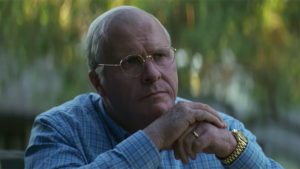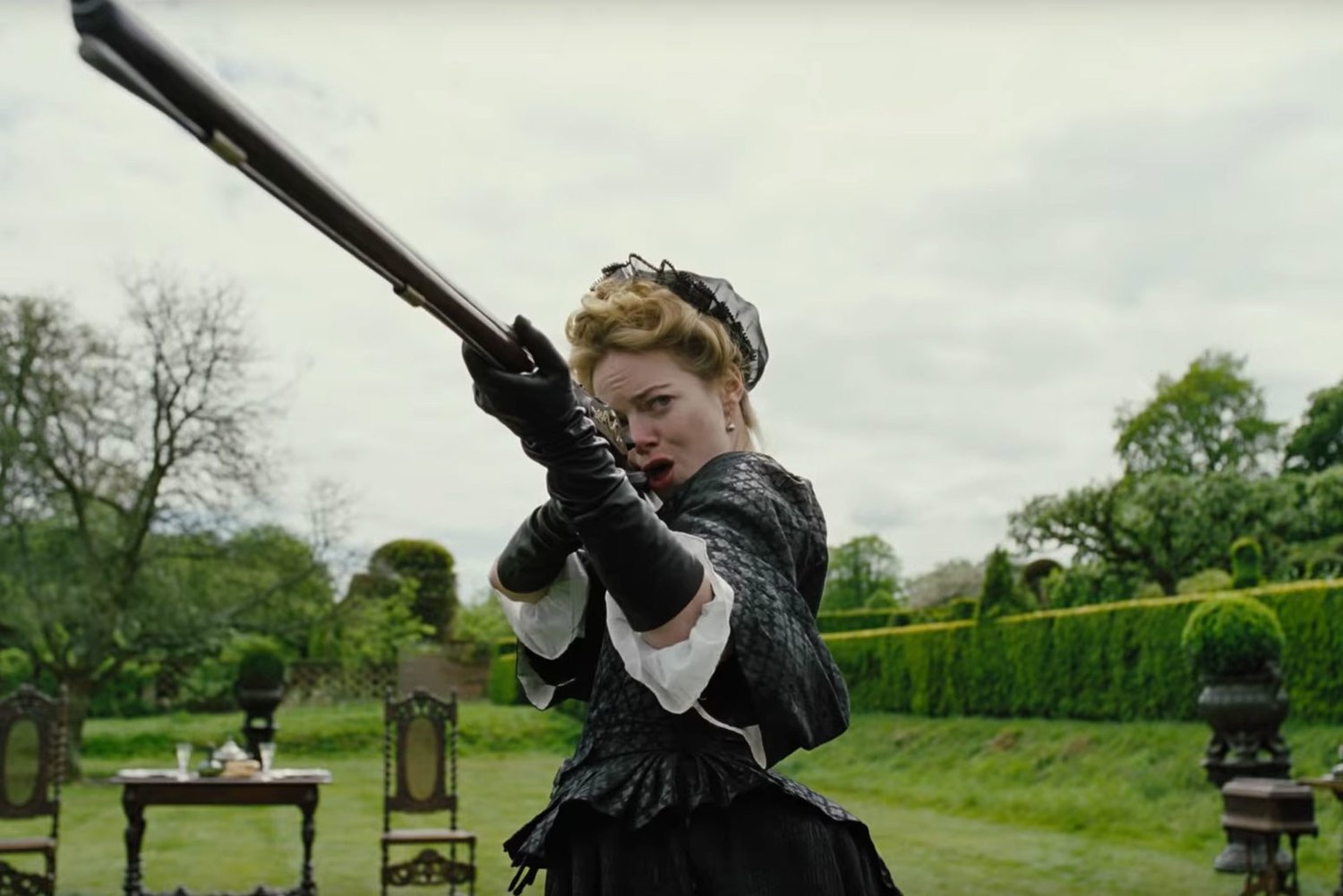Every Best Picture nomination, reviewed
The Oscars are only a few weeks away, and it seems like this year’s award season has largely come and gone with a shrug. What is usually the most highly anticipated awards show of the year seems to be losing its cultural importance, seen most starkly in the lack of a host and the plethora of social issues surrounding Hollywood and the film industry this past year. The slate of films nominated seem a bit weaker than usual as well, but as always there are a few diamonds in the rough.
Here are my thoughts on the 8 movies nominated for Best Picture, ranked from best to worst:

Roma: Much has been already said about the technical mastery of Roma, something we’ve come to expect of an Alfonso Cuarón film. But it really is worthy of all the recognition, as Cuarón masterfully combines cinematography, sound, and editing (2 of those 3 handled by Cuarón himself) to create a world that’s not only fully immersive but also wholly emotional. But lost in all this discussion is how weird the film often gets. There are numerous digressions in movie theaters, martial art classes, vacation homes, and department stores — it’s a film packed with many different settings, ideas, and feelings, but nothing feels out of place. Although it may look inaccessible on the surface, it is a film that really has something for everyone. And no, you don’t necessarily have to see it on a big screen.

A Star Is Born: On paper, this is a film that rightfully received apprehension. It is the fourth adaptation of a story that’s been done before to varying degrees of quality and success, and it centered on two big personalities taking on roles that were new to them in directing and in acting. But it worked, and it feels like we all should’ve seen it coming. What I appreciate about this film is its earnestness; in a world of irony and post-irony, it’s nice to watch something that really cares about both its main characters and treats their romance and separate journeys with sincerity. I could also see an argument made that this is the most experimental film nominated for Best Picture this year, in how it gently shifts between the focus on the two characters, and how Bradley Cooper lets the camerawork and editing tell the story to visceral effect. It’s main flaw is that perhaps Cooper puts too much emphasis on his own character and doesn’t give Lady Gaga the proper weight in her ascension, an error considering who the titular star is. If this film didn’t emotionally affect you, U of T has made you too cold. And “Shallow” has not gotten old.

BlacKkKlansman: Perhaps the most boringly efficient movie nominated this year, Spike Lee’s BlacKkKlansman nevertheless feels exciting and current. About a black cop who, with the help of his coworkers, goes undercover as a member of the Ku Klux Klan, it may feel on the surface more conventional and procedural than Lee’s more stylistic and political work. And, a good amount of the enjoyment does come through it’s procedural elements, seeing stars John David Washington and Adam Driver slowly make their way in on the case. But the political implications and the thorniness of the situation are not forgotten, and there are multiple stunning sequences playing with this tension. What I found most touching about the film was the relationship between Washington and Driver’s characters, one black and one Jewish, showing the importance of allyship under oppressive regimes. Not to spoil it, but BlacKkKlansman has a suckerpunch of an ending, which puts together the relevance of this story and why it still remains vital today.

Green Book: Green Book has become the punching bag of the 2018 awards season. Ever since winning the audience award at TIFF, the reception has diminished and the vitriol towards it on social media has gone up. While it certainly has issues, I feel there has been a lot of unnecessary fuss made about what is a completely fine and pleasant movie. There seems to be two misunderstandings: one, that this is a film primarily about race, oversimplifying complex issues and not giving one party it’s necessary credence. While these criticisms are worthy, the film appeared to be more about class difference than racial difference, and how the two main characters played by Viggo Mortensen and Mahershala Ali overcome their different backgrounds and statuses. Moreover, reporting has proven that much has been left out from the backstory of Ali’s character, Don Shirley. This is definitely true, but I prefer to judge a film by what’s in it, rather than what isn’t (this issue is more of a problem for a film or two we’ll talk about later). But, for what’s in the movie, director Peter Farrelly does a good job at applying his comedy background to more sophisticated material. While it is the type of self-congratulatory film that the Oscars tend to reward, it is one of the better movies that they’ve nominated that your grandma loves.

Black Panther: I am fully willing to acknowledge that I am not the one to speak on this movie, as I am white, and I have also been thoroughly exhausted by superhero movies for the past few years. Black Panther does its job well, and offers some slight originality and depth to the template. It also has a very good collection of actors, and actually does well to fulfill its promise of expanding the representation of diverse peoples on screen. But its style of storytelling and set piece after set piece is one that made me growingly weary. Ultimately, it shows that all a comic book blockbuster needed to do was put in the smallest effort to receive major critical acclimation and awards recognition.

The Favourite: It is very disappointing for me as well to see this film so low on this list, as I am a big fan of Yorgos Lanthimos’ previous work. Dogtooth, and to an extent The Lobster and The Killing of a Sacred Deer, all take on social themes with excellent dark humor. But in a shift to Oscar-friendliness, Lanthimos seems to have missed the mark. Maybe its biggest crime is that it’s not very funny, unless you find the initial idea of 18th-century English bureaucrats swearing and provoking normative sexuality hilarious in the first place. It is missing the bite of Lanthimos’ previous films in exchange for something safer for a wider audience. While it does certainly have its moments, it seems to me like a film that wants to give off the impression that it is saying something important but is actually rather empty. The love for Olivia Colman’s performance and her promotion to the lead has been baffling to me, as the attention should be going to the quite good Emma Stone and Rachel Weisz. It has some cute ducks and bunnies, though.

Bohemian Rhapsody: The huge success of this film seems to be a surprise to even its most dedicated believers — I wouldn’t have expected it to be still around come Oscar season, let alone be a box office smash. But there’s something about this film that is connecting with people, despite how evidently terrible it is, as both an offence to Queen and to cinema as an art form. This is the closest we’ve come to a filmed Wikipedia article: everything is formed to fit the conventional biopic structure and anything interesting about Freddie Mercury’s life or the band’s story is passed by, given no depth in order to satisfy the average audience member and give them a good feeling going home. Bryan Singer’s direction is incompetent, the costumes and sets seem amateur for a film of its status, and Rami Malek’s performance as Freddie Mercury comes off as a cheap impression. It almost works as a parody of the musical biopic, à la Walk Hard: The Dewey Cox Story, from the non-presence of the rest of the band and Mercury’s poorly dramatized conflicts with them, to the diminishing of Mercury’s bisexuality in ways that could read as homophobic, and the coincidence that every important life event and encounter for Mercury happens on the same day as his Live Aid performance. The songs are very good though, and with all this in mind, it is fun to watch.

Vice: Coming off of a career of comedies and his Oscar breakthrough The Big Short, Adam McKay has gotten too confident, making a film about Dick Cheney that comes off as condescending to any viewer, no matter their political beliefs. His portrayal of the horrors committed by Cheney is constantly in your face, and consistently dumbed down, making anyone who watches it feel like a sucker, which ends up having the opposite effect of making us feel that we’re above what we’re watching. What is even more intolerable is that the film is stylistically horrid: it’s an eyesore to look at, and the quick style of editing that made The Big Short work completely fails with this material. Christian Bale’s performance does anchor the film well — it’s enjoyable to watch all his slight mannerisms learned from Cheney — but everyone else seems to be doing a Saturday Night Live-style impression of the person who they’re playing. Occasionally, it makes poignant observations, and a thread of the film involving its mysterious narrator is unexpected and emotional, but this is undone by the film’s insidious one-two punch of closing scenes. It also features perhaps the most embarrassing scene of the year, involving Macbeth. You can say it does serve a social function of reminding many that the current president of the U.S. is not an anomaly, but only if it was done in a way that wasn’t so insulting to its audience.
